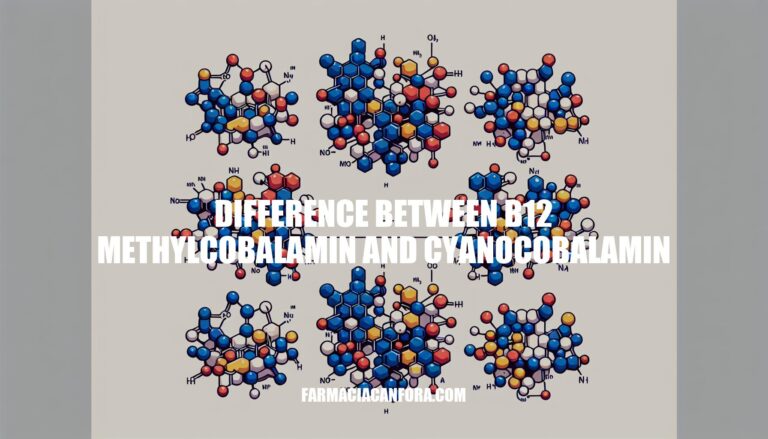


When it comes to choosing the right vitamin B12 supplement, the debate between methylcobalamin and cyanocobalamin often leaves many people confused. Understanding the critical differences between these two forms of B12 is essential to make an informed decision about your health. So, let’s dive into the world of B12 supplements to unravel which option – methylcobalamin or cyanocobalamin – is the better choice for your well-being.
When it comes to vitamin B12 supplements, two forms often dominate the conversation: methylcobalamin and cyanocobalamin. But what’s the difference between these two types of B12? And which one is better for your health?
Let’s start by understanding that methylcobalamin is a naturally occurring form of vitamin B12, whereas cyanocobalamin is synthetic. The latter contains a cyanide molecule, which may not seem like a big deal at first, but trust me, it’s significant. Cyanocobalamin is poorly absorbed by the body and requires complex biochemical processes to convert it into active forms of vitamin B12 that your cells can actually use.
Not only that, but prolonged or excessive intake of cyanocobalamin may pose potential health risks.
In contrast, methylcobalamin is more potent and generally considered the better choice. It’s naturally occurring, so it doesn’t require conversion processes in the body. What’s more, it’s significantly better absorbed and associated with a lower risk of side effects.
Methylcobalamin also has a unique ability to donate its methyl group, which is crucial for DNA synthesis, neurotransmitter production, and detoxification processes.
So, why does this matter? Well, if you’re taking a vitamin B12 supplement, it’s essential to choose the right form. Cyanocobalamin may be cheaper to produce, but its potential risks far outweigh any cost savings.
Methylcobalamin, on the other hand, offers more benefits and fewer drawbacks.
By choosing the right form of vitamin B12 supplement, you can ensure that you’re getting the most out of your supplement and minimizing potential risks to your health. So, make sure to opt for methylcobalamin – your body (and mind) will thank you!
In conclusion, the difference between B12 methylcobalamin and cyanocobalamin goes beyond mere chemical structures. Methylcobalamin, being the naturally occurring and readily absorbable form, emerges as the superior choice for your health. Its ability to donate a methyl group and lower risk of side effects make it a more effective and safer option compared to cyanocobalamin.
By opting for methylcobalamin in your vitamin B12 supplement regimen, you can ensure you’re maximizing the benefits and minimizing potential risks to your overall health. So, remember, when it comes to B12 supplementation, choosing methylcobalamin over cyanocobalamin is definitely the smart way to go.